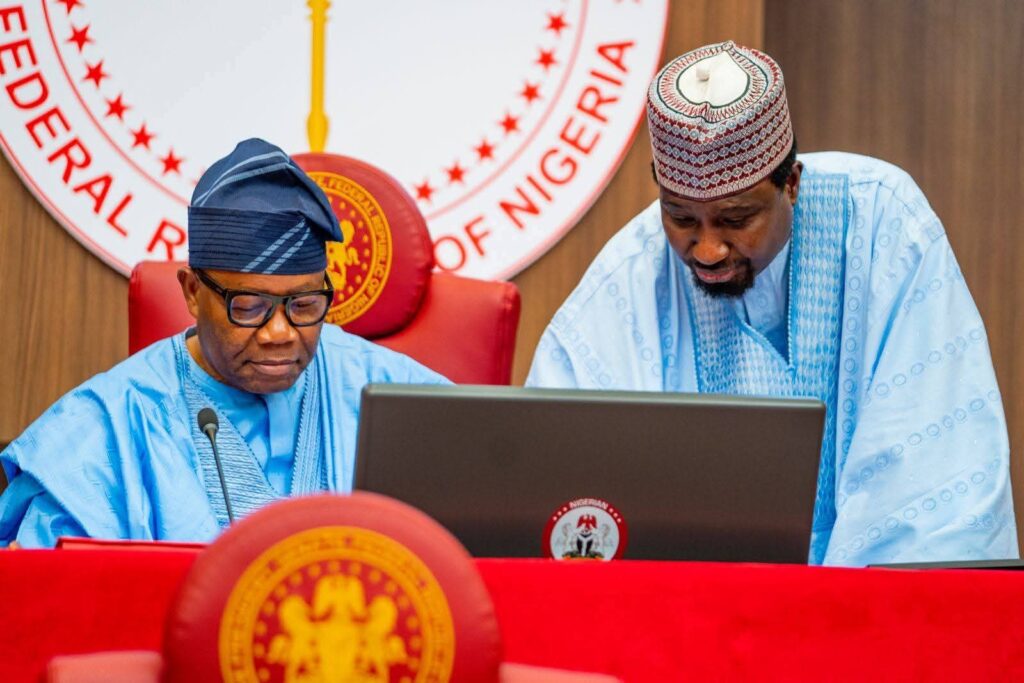
Electoral Act Amendment Bill Passes Second Reading in Senate
A bill seeking to repeal the Electoral Act 2022 and enact a new Electoral Bill 2025 has passed second reading at the Senate.
The Senate President, Godswill Akpabio, announced the passage during Wednesday’s plenary after a majority of senators supported it through a voice vote.
Following its passage, the bill was referred to the Senate Committee on Electoral Matters for further deliberation and a public hearing.
The committee was directed to report back within two weeks.
The bill, sponsored by the Chairman of the Senate Committee on Electoral Matters, Simon Lalong (APC, Plateau South), aims to strengthen the legal framework governing elections in Nigeria.
The bill was initially presented for second reading last Thursday, but was stepped down to allow for wider consultation. It, however, resurfaced during Wednesday’s session, where lawmakers extensively debated its general principles.
While presenting the bill, Senator Lalong acknowledged that the Electoral Act 2022 introduced significant reforms but also revealed certain weaknesses, such as delays in the release of election funds, disputes over voter registers, conflicting interpretations of result transmission, and weak enforcement of electoral offences.
He explained that the new legislation seeks to enhance the independence of the Independent National Electoral Commission (INEC) by insulating it from political interference and government control.
During the debate, Adamu Aliero (APC, Kebbi North) called for the inclusion of clear provisions on the electronic transmission of results.
He urged his colleagues to strengthen the use of the Bimodal Voter Accreditation System (BVAS) to ensure transparency in elections.
Orji Kalu (APC, Abia North) encouraged all lawmakers, including those in the opposition, to work together towards building a transparent electoral process.
In his closing remarks, the senate president noted that the credibility of Nigeria’s elections has improved since the ruling All Progressives Congress (APC) assumed power in 2015, but added that more work is needed to achieve full transparency.
“INEC must be made responsible because they are the ones in possession of electoral materials. We’ve had improvements, but we need to do more,” Senator Akpabio said.
He thereafter put the bill to a voice vote, and the senators overwhelmingly supported it.
Highlights of the proposed amendment to the Electoral Act
The proposed Electoral Act 2025 introduces reforms aimed at strengthening Nigeria’s electoral governance, enhancing the independence of INEC, and promoting greater transparency and accountability across political and electoral processes.


